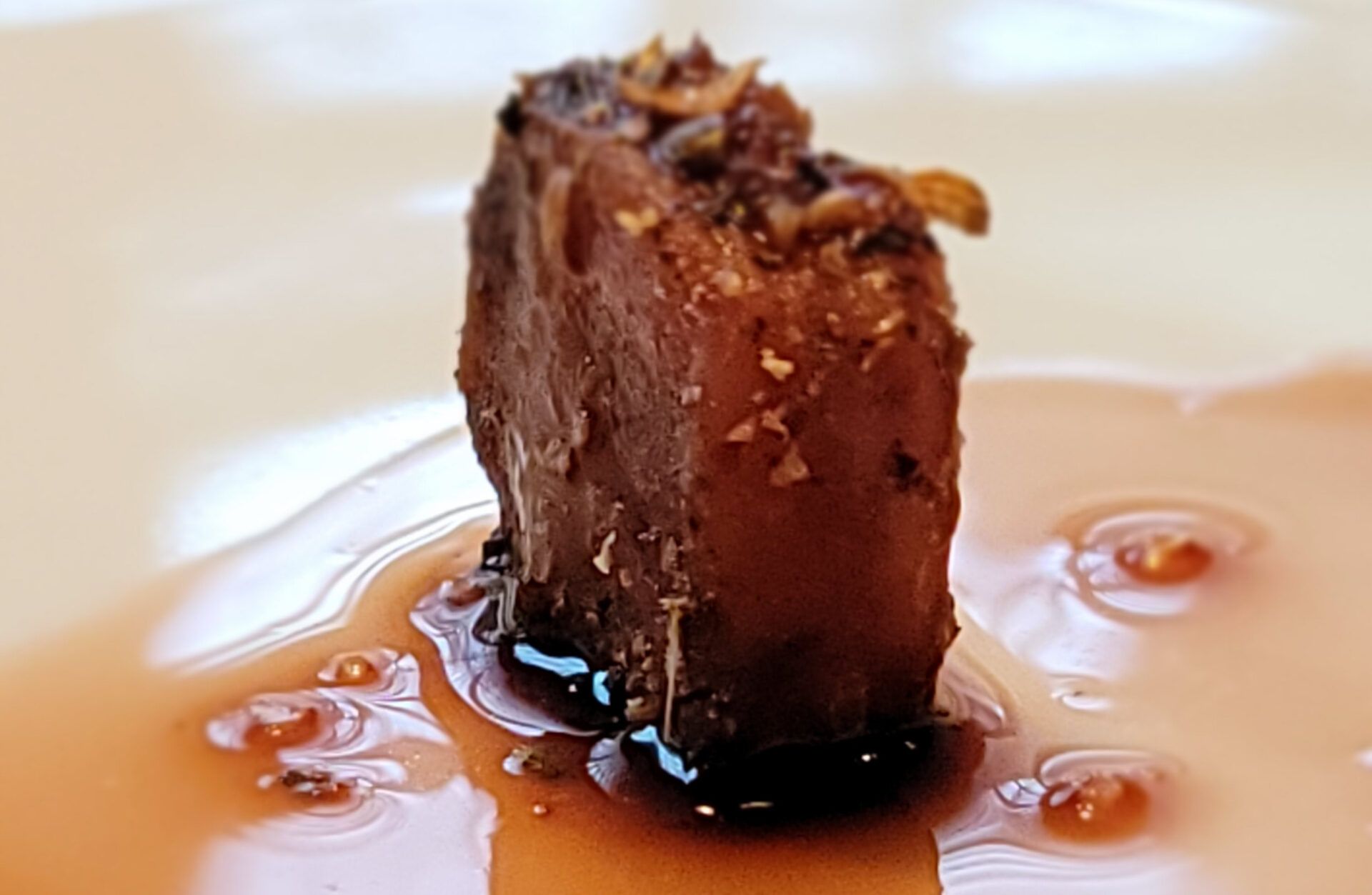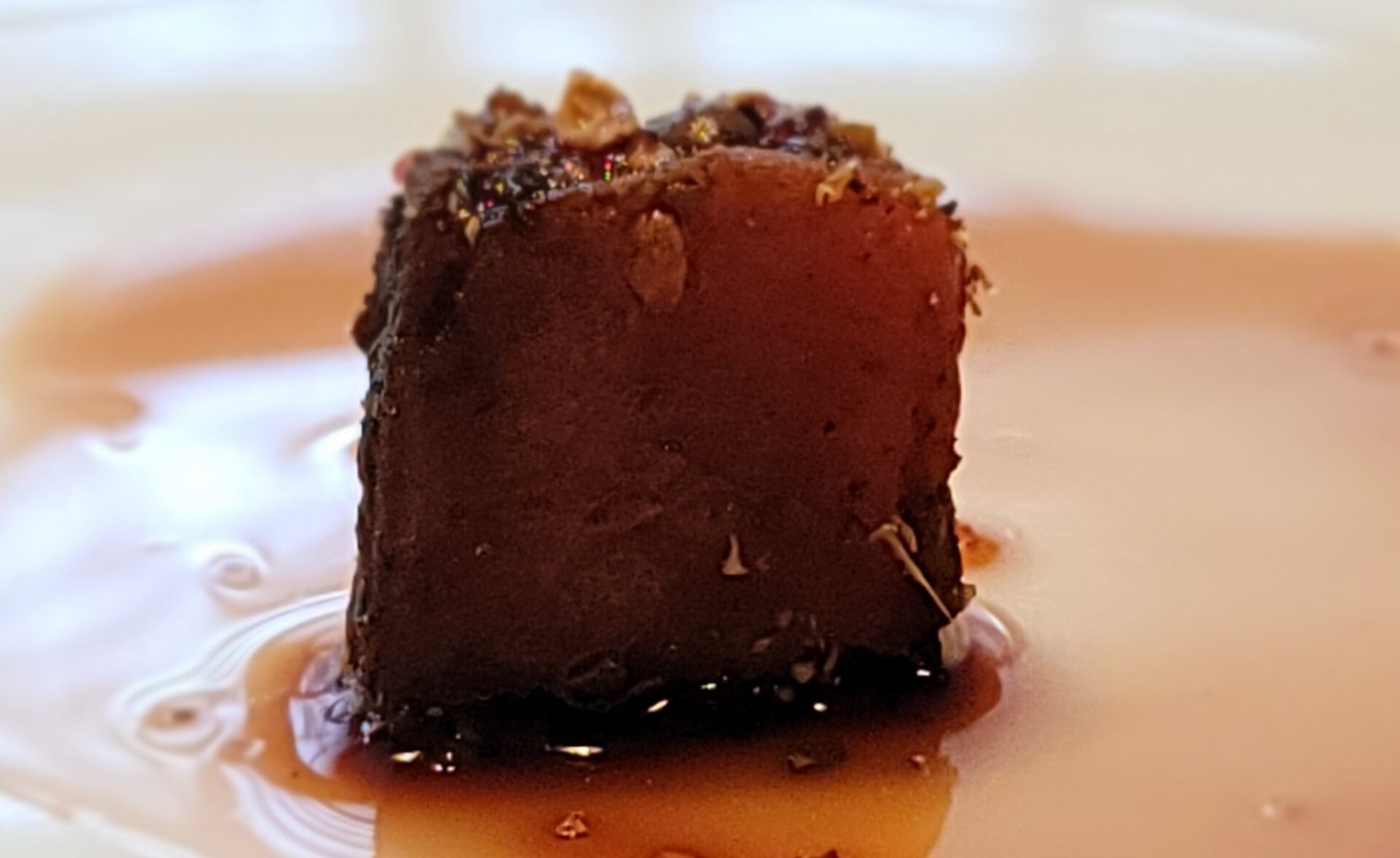“To get really diehard meat lovers to transition to cultivated meat, it’s going to need to be really close to the real thing,” says the founder and CEO of Myodenovo, a US-based startup emerging from stealth with a mission to create thick, whole cuts of meat, starting with a filet mignon steak.
“Some of the initial hybrid products in the market [processed meat products such as burgers and nuggets combining cell biomass and plant-based proteins] are amazing,” Dr. George Engelmayr told AFN on the sidelines of the Future Food Tech conference in San Francisco.
“What we’re doing is the next step in the evolution of [cultivated] meat products, as if you don’t get the texture right for a steak, it’s not going to be compelling,” said Engelmayr, who is based in Durham, North Carolina.

Final products are 90%+ cultivated meat
A biomedical engineer who conducted postdoctoral training in cardiac muscle tissue engineering and scaffold microfabrication at Massachusetts Institute of Technology (MIT), Engelmayr went on to work at regenerative medicine firm Humacyte and cultivated meat startups Memphis Meats (now UPSIDE Foods) and Mission Barns before launching his own company at the tail end of last year.
As he is currently filing patents, Engelmayr cannot yet go into detail on his scaffolding technology, but told us he was utilizing advanced manufacturing and automation and biomechanics to mimic muscle tissues in a process that is “scalable, cost effective, and designed for regulatory approval from day one. My target is to do my first FDA submission by Q2 of 2024 and maybe sooner.”
He added: “I’m working on three provisional patents, one of which revolves around the scaffolding material, one around the bioreactor system, and another one around the cell source for these tissues.
“We’re working with plant-derived scaffold materials that are really minimal and so the final product is greater than or equal to 90% cells and tissues from cows.”
Plant-based scaffolding forms small percentage of final product
So how does this compare to what some other startups are doing to create more structured products, whereby cells differentiate and mature into something more recognizable as tissue?
Israeli startup Aleph Farms, for example, is seeding cells around thin sheets of edible scaffolding to make its first product: thin beef steaks. It is also exploring 3D printing to make thicker cuts of meat for a second generation of products.
Myodenovo, in turn, is using scaffolding to create thicker cuts of tissue, said Engelmayr, who said there are “two distinct approaches in tissue engineering. One is what’s referred to as ‘bottom up,’ and 3D printing would fall into that category. And then there’s ‘top down,’ where in essence, we’re relying on the cells to do all the work, to create tissue structure.”
He added: “Where I had most of my training was with scaffolding materials that were principally air, where only 4% of the final material was scaffolding. The cells attach to the scaffolding, but then they secrete their own extracellular matrix proteins, collagen and so on, to fill in all those gaps.
“Plant-derived scaffolds are the secret sauce we’re working on right now, but in essence [our IP] has to do with how we’re configuring these materials and the dimensions of the scaffolding materials that elicit the tissue formation process from the cells.”

Cultivated meat economics: ‘I was initially skeptical too, but these past five years working in the space, that skepticism has gone away’
Asked about commentators who argue that cultivated meat faces intractable problems at food scale, Engelmayr said: “In 2013 when Professor Mark Post unveiled the first cultivated meat burger, I was working at Humacyte and coming from a biomedical background, I was a bit skeptical too, but these past five years working in the space, that skepticism has gone away.
“A lot of the work I’ve done over the past five years has been on scale up, and cost of goods reduction, which is obviously going to be critically important. Having worked from the ground up and been in the trenches, now I have the opportunity to start with a blank slate.”
To get out of the starting blocks, Engelmayr has raised an undisclosed sum from Sustainable Food Ventures and Nate Salpeter and Anna Sweet from Sweet Farm Animal Sanctuary, and is now raising $2 million in pre-seed funding for 18 months of runway.
“It’s still very early days,” he said, “but I’ve already developed our first prototype, a cultivated filet mignon bite. The next step is to make filet medallions, then ultimately an eight ounce filet mignon steak for a tasting later this year.”
Further reading:





